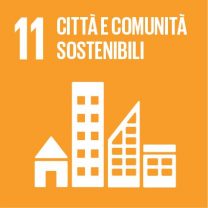Authors
Sustainable development goals
Themes
- social enterprise
- social innovation
- social impact investing
Tools
- co-design
- capacity building
- design for policy
What does the promoted behavioral change consist of?
Includi.Mi vuole incentivare l’incontro tra amministratori pubblici ed innovatori sociali per permettere una migliore sinergia tra le due categorie di soggetti.
Il progetto promuove un cambio di comportamento per i policy-maker, i quali si avvalgono di metodologie e strumenti di co-design, in un approccio di design for policy. Questo approccio permette sia di comprendere i bisogni dei beneficiari sulla scala cittadina, sia di sperimentare un percorso di formazione partecipato su nuovi strumenti finanziari ad impatto sociale (in particolare il pay-for-results).
Il progetto ha avuto il duplice obiettivo di modificare il comportamento dei soggetti coinvolti e di formarne le capacità (capacity building) nei riguardi dell’approccio di design e sul tema della finanza ad impatto sociale, favorendo la conoscenza combinata di questi elementi in relazione a possibili progetti su scala urbana.
What are the main features of the tools designed/implemented to promote behavioral change and how have they been tested?
The goal was to experiment with an innovative format in which generating a new space for discussion and planning, to imagine new paths of public-private collaboration in support of social innovation. The two days included: co-design and hands-on work sessions on the issues of policymaking for the social enterprise, thematic in-depth sessions (lectures), the reports from the field by professionals personally involved in international best practices, work on data and insights on the ecosystem of social enterprises in Milan (original content produced by the researchers of Includi.MI).
What results have been achieved? What are the potentials and obstacles?
Participants rated the capacity building as innovative and useful for understanding the contents of the project. This type of format has great potential as almost all of the participants said they were willing to repeat the experience. The major obstacle encountered by the participants and the project team was the limited timeframe in which the School’s activities had to be contained, since the large commitment would have required a format extended over several days.
[last update: 5/12/2019]
Research team at PoliMi
Stefano Maffei – Coordinator Department of Design/Design Policy Lab
Marzia Mortati, Francesco Leoni – Department of Design/Design Policy Lab
Mario Calderini – Coordinator Department of Management, Economics and Industrial Engineering / Tiresia
Denise Di Dio – Department of Management, Economics and Industrial Engineering / Tiresia
Co-funded by Fondazione Cariplo, with the support of Comune di Milano










